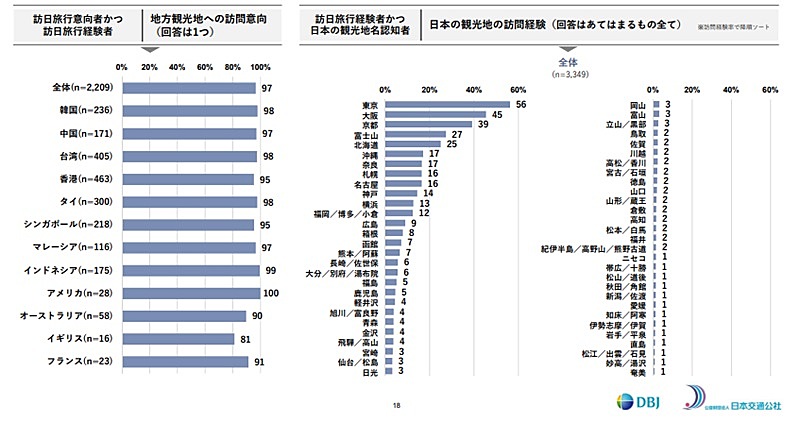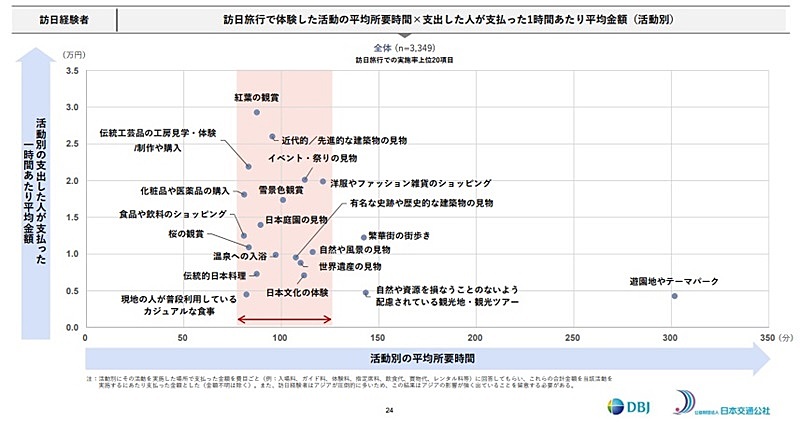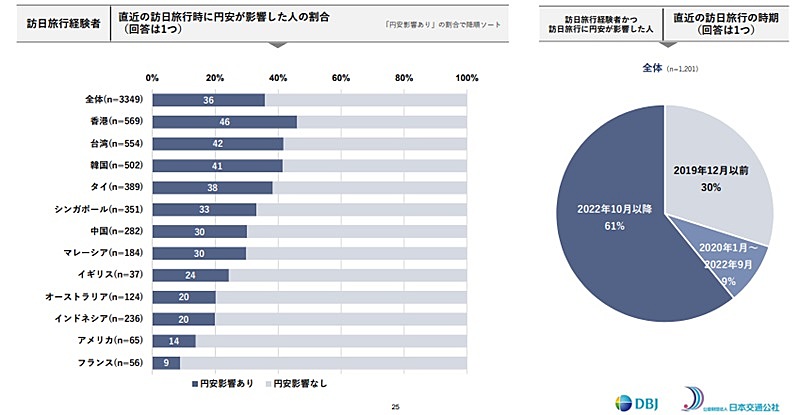
The joint inbound travel report by JTB Foundation (JTBF) and Development Bank of Japan (DBJ) finds that inbound travelers from the world intend to visit regional destinations in Japan, but they have not been there yet.
100% of U.S. respondents said that they intend to visit regional destinations, and the ratios exceed 90% among other target markets except U.K. (81%). However, the ratio of those who have visited regional destinations before is less than 10% on average. The survey results represent that tourists from Europe, U.S. and Australia actually concentrate on major cities, such as Tokyo or Osaka, and well-known tourist destinations, such as Okinawa or Hokkaido.
The survey results also show that higher awareness a regional destination has, higher visitation rate it has.
Among respondents who have been regional destinations since 2015, 72% were first-timers to Japan, while 90% repeaters. The ratios were 73% for first-timers and 90% for repeaters in Asia and 67% for first-timers and 77% for repeaters in Europe, U.S. and Australia.
Travelers who have experienced traditional Japanese foods, onsen or World Heritages in regional destinations highly revisited Japan.
 出所:(株)日本政策投資銀行、(公財)日本交通公社
出所:(株)日本政策投資銀行、(公財)日本交通公社
36% were affected by weaker yen for selecting Japan
Popular activities in regional destinations are to see nature and landscapes. The average time to spend for activities are around 100 minutes, Spending per hour varied with activities, and the highest spending was found in seeing autumn leaves in Kyoto and Tokyo, which were preferred by luxury travelers as well. Also, higher spending was seen in seeing modern architectures or seeing or experiencing traditional craftworks.
 出所:(株)日本政策投資銀行、(公財)日本交通公社
出所:(株)日本政策投資銀行、(公財)日本交通公社
Among respondents who have visited Japan before, 36% said that they chose Japan due to weaker yen. By source market, the ratios were particularly high in Hong Kong (46%), in Taiwan (42%) and in South Korea (41%). 61% of the total said that they were affected by weaker yen after October 2022.
 出所:(株)日本政策投資銀行、(公財)日本交通公社
出所:(株)日本政策投資銀行、(公財)日本交通公社




